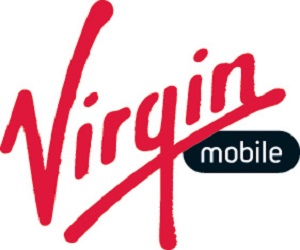Report: Racial Divide with Changing Demographics Costs MN Billions
Action is needed now because the inequalities mean the state loses out on billions of dollars every year, said report author Jennifer Tran, senior associate for PolicyLink.
“Minnesota’s GDP (gross domestic product) in 2011 would’ve been $16.4 billion if it wasn’t for racial gaps in income,” she said. “Unless gaps are closed, the cost of inequity is only going to grow larger as the state becomes more diverse.”
The state is becoming more diverse rapidly. In 1980, Tran said, just 4 percent of Minnesotans were people of color. Today that figure is 17 percent, and by 2040 it’s expected to be close to 30 percent.
The report was funded by a handful of local nonprofits, including the Blue Cross and Blue Shield of Minnesota Foundation, where Stacey Millet is a senior program officer.
“We want to be able to be positioned to seize on every opportunity to boost equity for education, for jobs and all of those factors that we at the foundation focus on with our work,” she said, “in looking at how we can improve conditions where people live, learn, work and play to reach their full health potential.”
To help provide equal opportunities, the report suggests strategies for growing good jobs, removing racial barriers and preparing youth for tomorrow’s workforce. Millet said that starts with providing children at all income levels access to quality early education and preschool.
“We as a foundation feel quite confident that that is a strategy that can be very helpful to preparing youth for academic success and addressing some of those gaps as they move on to kindergarten, and to middle school and high school, and so forth,” she said.
The full report, “Minnesota’s Tomorrow: Equity is the Superior Growth Model,” available at the PolicyLink website, policylink.org, is being presented today at the Humphrey School of Public Affairs in Minneapolis. It was produced by PolicyLink and the University of Southern California’s Program for Environmental and Regional Equity, and funded by Northwest Area Foundation, Blue Cross and Blue Shield of Minnesota Foundation, Nexus Community Partners, Twin Cities Local Initiative Support Corp. and the John S. and James L. Knight Foundation.
Action is needed now because the inequalities mean the state loses out on billions of dollars every year, said report author Jennifer Tran, senior associate for PolicyLink.
“Minnesota’s GDP (gross domestic product) in 2011 would’ve been $16.4 billion if it wasn’t for racial gaps in income,” she said. “Unless gaps are closed, the cost of inequity is only going to grow larger as the state becomes more diverse.”
The state is becoming more diverse rapidly. In 1980, Tran said, just 4 percent of Minnesotans were people of color. Today that figure is 17 percent, and by 2040 it’s expected to be close to 30 percent.
The report was funded by a handful of local nonprofits, including the Blue Cross and Blue Shield of Minnesota Foundation, where Stacey Millet is a senior program officer.
“We want to be able to be positioned to seize on every opportunity to boost equity for education, for jobs and all of those factors that we at the foundation focus on with our work,” she said, “in looking at how we can improve conditions where people live, learn, work and play to reach their full health potential.”
To help provide equal opportunities, the report suggests strategies for growing good jobs, removing racial barriers and preparing youth for tomorrow’s workforce. Millet said that starts with providing children at all income levels access to quality early education and preschool.
“We as a foundation feel quite confident that that is a strategy that can be very helpful to preparing youth for academic success and addressing some of those gaps as they move on to kindergarten, and to middle school and high school, and so forth,” she said.
The full report, “Minnesota’s Tomorrow: Equity is the Superior Growth Model,” available at the PolicyLink website, policylink.org, is being presented today at the Humphrey School of Public Affairs in Minneapolis. It was produced by PolicyLink and the University of Southern California’s Program for Environmental and Regional Equity, and funded by Northwest Area Foundation, Blue Cross and Blue Shield of Minnesota Foundation, Nexus Community Partners, Twin Cities Local Initiative Support Corp. and the John S. and James L. Knight Foundation. - See more at: http://www.publicnewsservice.org/2014-03-26/health-issues/report-racial-divide-with-changing-demographics-costs-mn-billions/a38340-1#sthash.wSf6bwRu.dpuf

